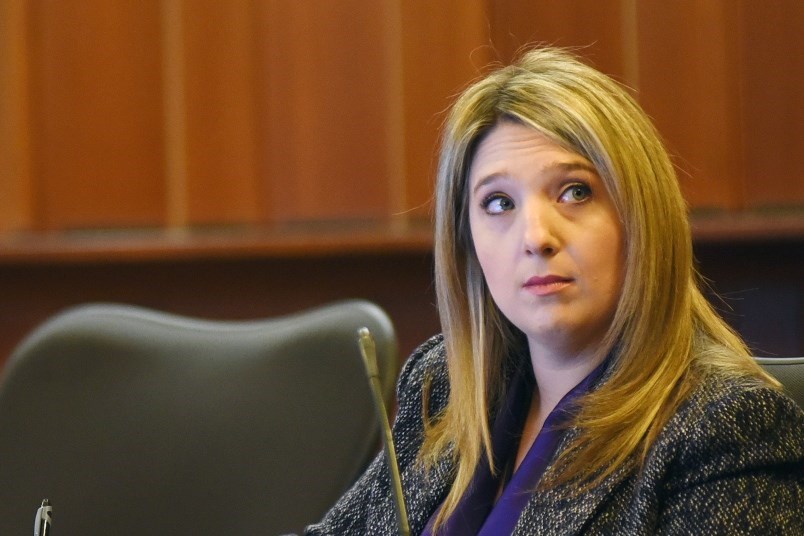Vancouver city council unanimously agreed Tuesday to deliver an official apology in June to Italian-Canadians for injustices and harms that previous city councils supported and perpetuated against “enemy aliens” during the Second World War.
The apology will be read at a council meeting to coincide with Italian Heritage Month while city staff will also consider placing a public art installation at an undetermined spot in Vancouver to commemorate the apology.
“I think that it's very important that as a city, we acknowledge the history, we acknowledge the wrongs, we acknowledge the city's role at that time,” said Coun. Lisa Dominato, who is of Italian heritage.
Following Canada’s declaration of war on Italy in 1940, the Canadian government instructed the RCMP to round up Italian Canadians who were perceived as a threat because of their association with the Fascist Party in Canada.
'Enemy aliens'
In Vancouver, approximately 33 Italians were included in the roundup and deemed to be “enemy aliens,” a term used in a city council motion in 1942. The Italians were then interned at camps in Kananaskis, Alta. and Petawawa, Ont.
Additionally, the Mounties, with the cooperation of the Vancouver Police Department, instructed between 1,300 and 1,800 Italians to report monthly to the now-defunct RCMP headquarters at 33rd Avenue and Heather Street.
“The people interned were men, many who were forced to abandon their families, in many cases including young children, businesses and entire livelihoods,” said a city staff report prepared for council that included a draft apology.
“In addition to the economic hardships that many families experienced because their breadwinners were taken away, the stigmatization, humiliation, and shame experienced due to being targeted and having to report to the government on a regular basis remained for several years after the war ended.”
Ethnic slurs
None of the men, who spent an average of 15-and-a-half months in the camps, were charged with a crime. They have all since died, including Coun. Melissa De Genova’s great grandfather, who was among the prisoners.
De Genova shared with council Tuesday that her great grandfather’s concern about being targeted for his heritage caused him to change the family’s surname from Di Genova to De Genova to sound “less Italian.”
This was done to help him find work and fit in with the wider community in which he was the target of ethnic slurs, said De Genova, who was behind council’s push for an official apology to the Italian community.
Before her grandfather, or nonno, died, she said “he shared with me the pain, trauma and shame internment brought on our family.” Even today, De Genova added, Italians continue to be targeted for their heritage.
“Eighty years later, I'd like to think that we've moved forward but the slurs and stereotypes brought against people of Italian heritage are real and they still exist,” she said.
“I know because a few months ago, a group of activists who disagreed with me on a policy printed a T-shirt calling me Melissa ‘spaghetti’ De Genova and suggested a money trail be followed. What I can only infer from that, was a reference alluding to the mafia.”
'Gesture of goodwill'
Author Raymond Culos, known as the Italian community’s leading historian, told council that the treatment of Italians in Vancouver during war time makes it clear that an apology is warranted and necessary.
“An expression of regret and remorse from the City of Vancouver certainly would constitute a gesture of goodwill,” Culos said.
“It also would serve as an antidote for the lingering mental anguish felt by the descendants of those who endured such pain and suffering, and in some cases, financial loss as a result of often inexplicable actions taken by overzealous authorities over 80 years ago.”
The apology follows one delivered last year by Prime Minister Justin Trudeau, who stood in the House of Commons to apologize for the unjust internment of Italian Canadians during the Second World War.
Also last year, Mayor Kennedy Stewart read a formal apology in the council chamber to acknowledge the historical discrimination waged against 376 passengers travelling on board the Komagata Maru steamship from British India in 1914.
In 2018, the Gregor Robertson-led council apologized to Chinese Canadians at a ceremony in Chinatown for historical wrongs caused and perpetuated by previous city councils.
In 2014, the same council declared Vancouver a city of reconciliation.
@Howellings



